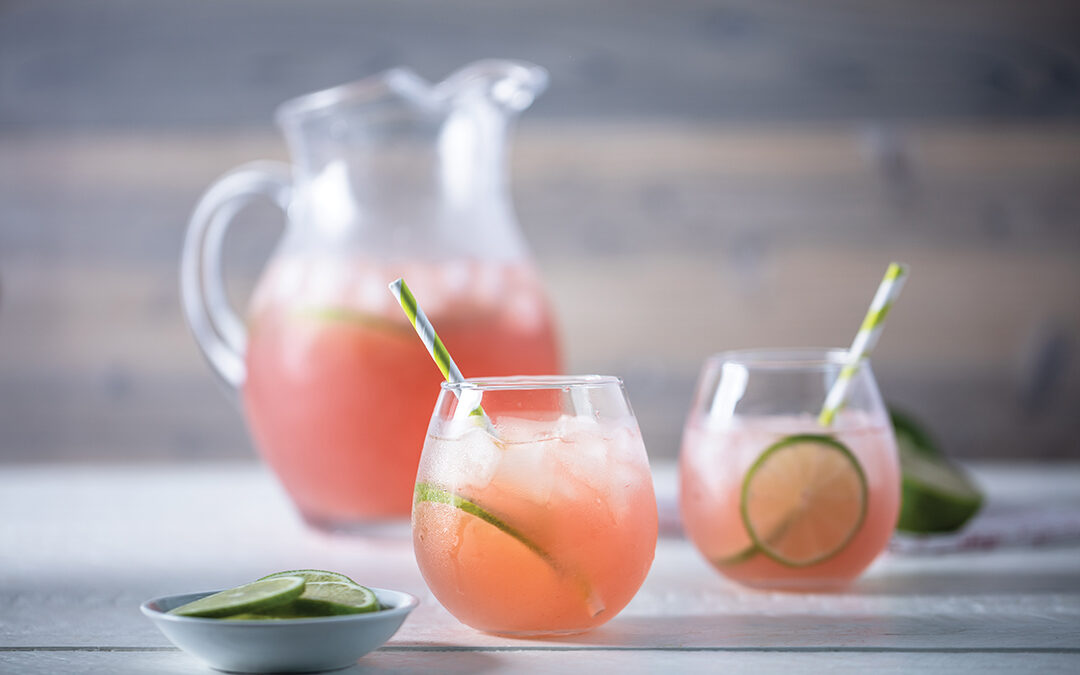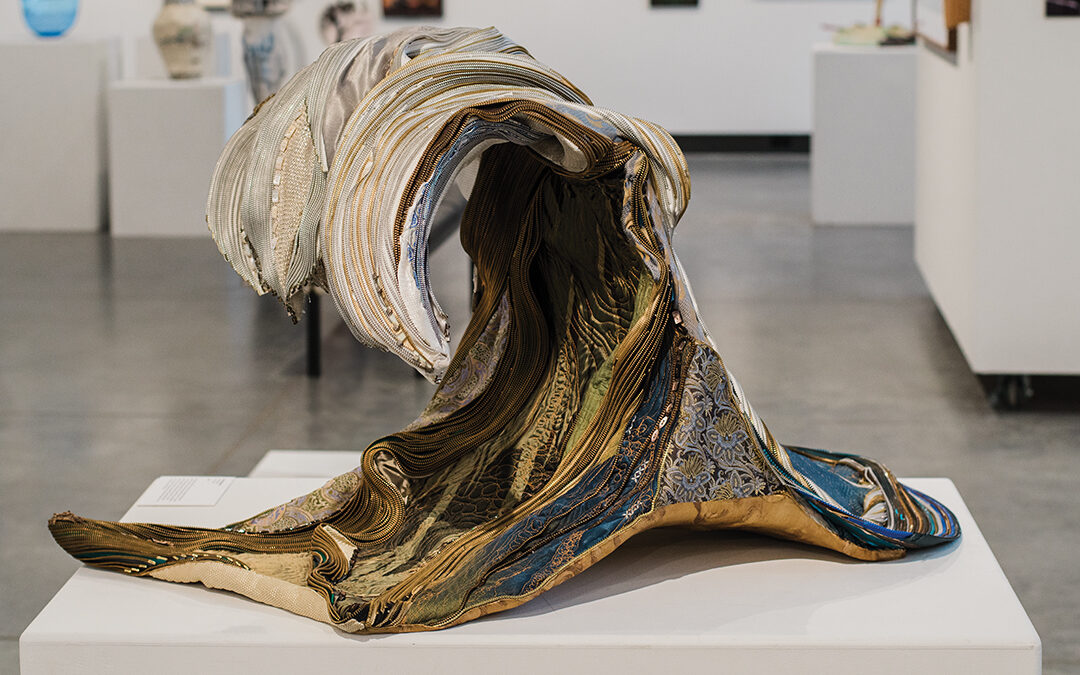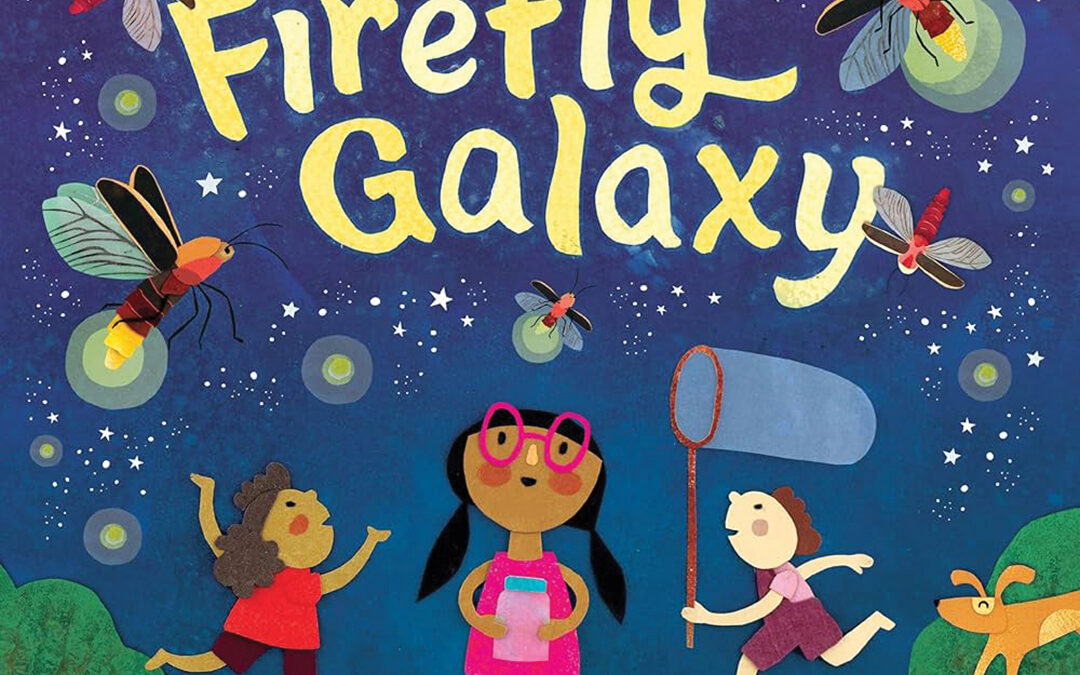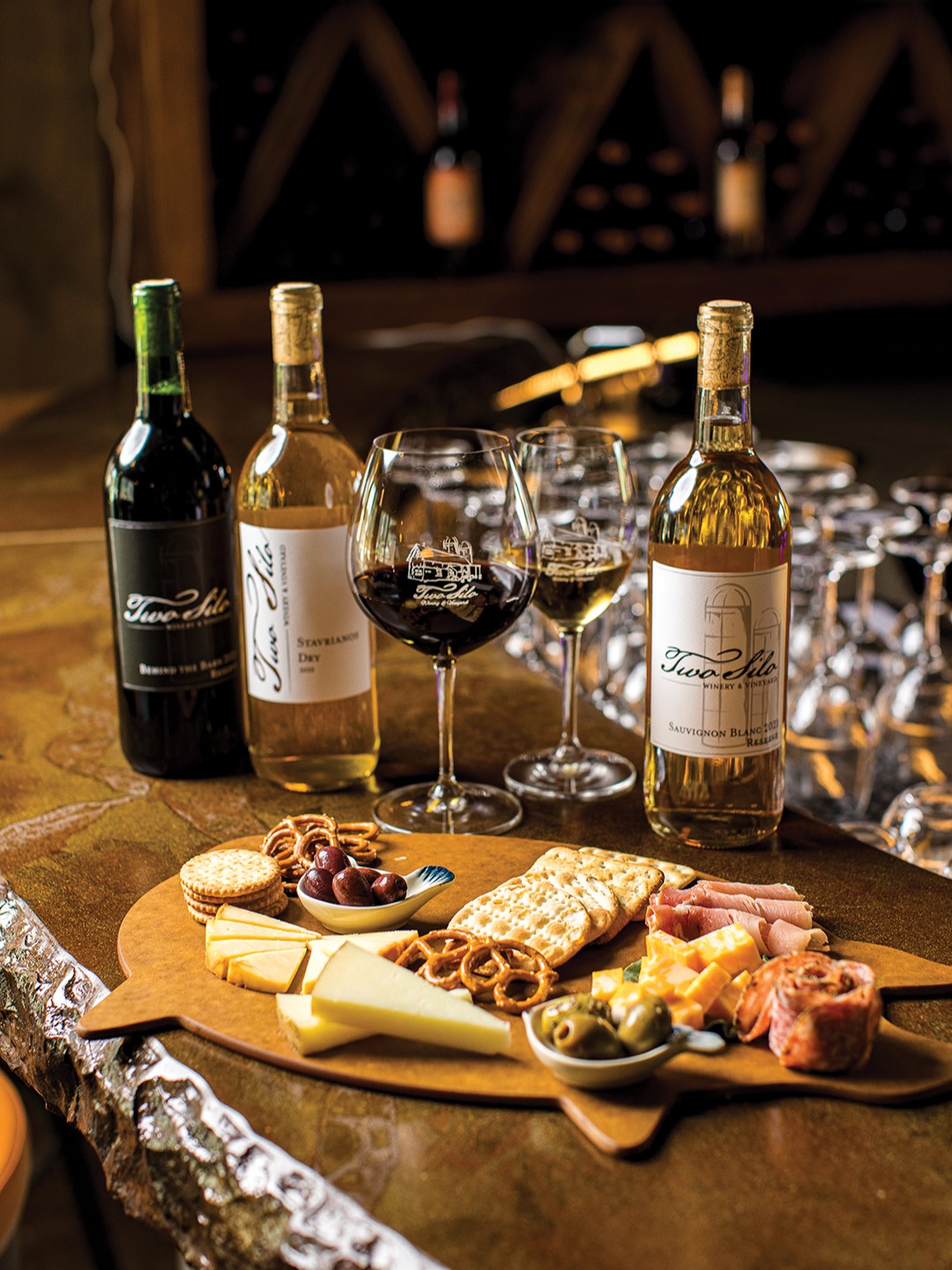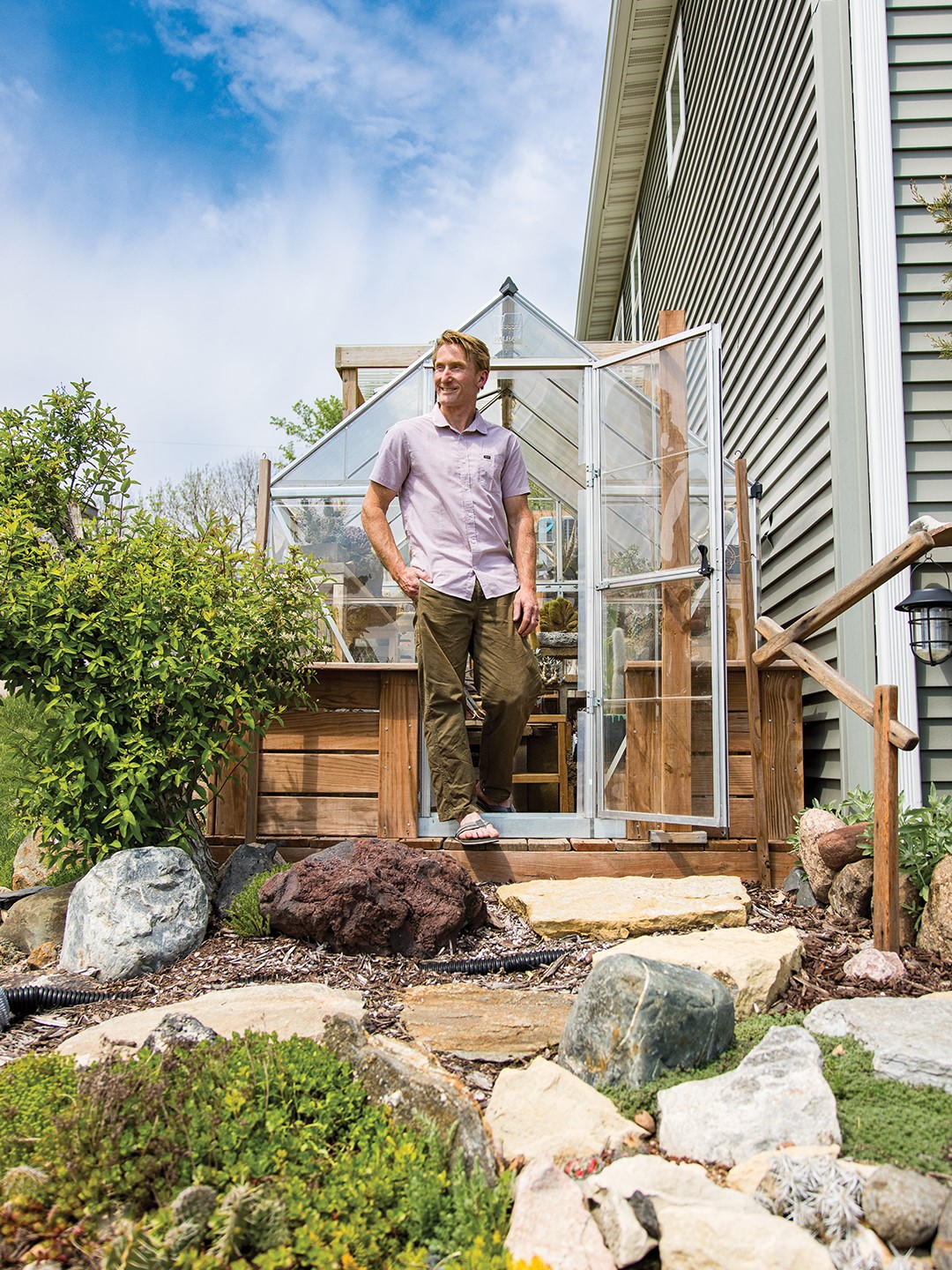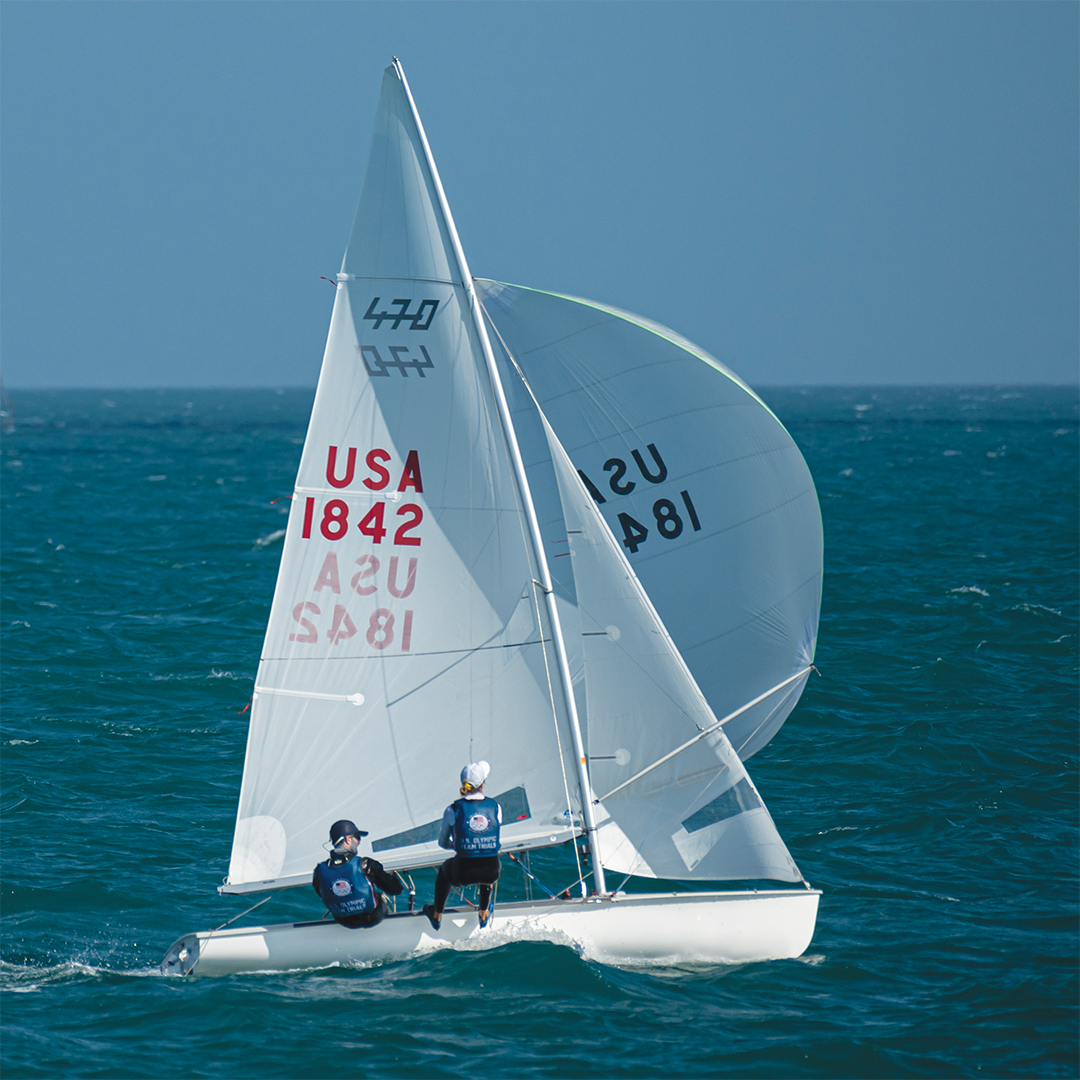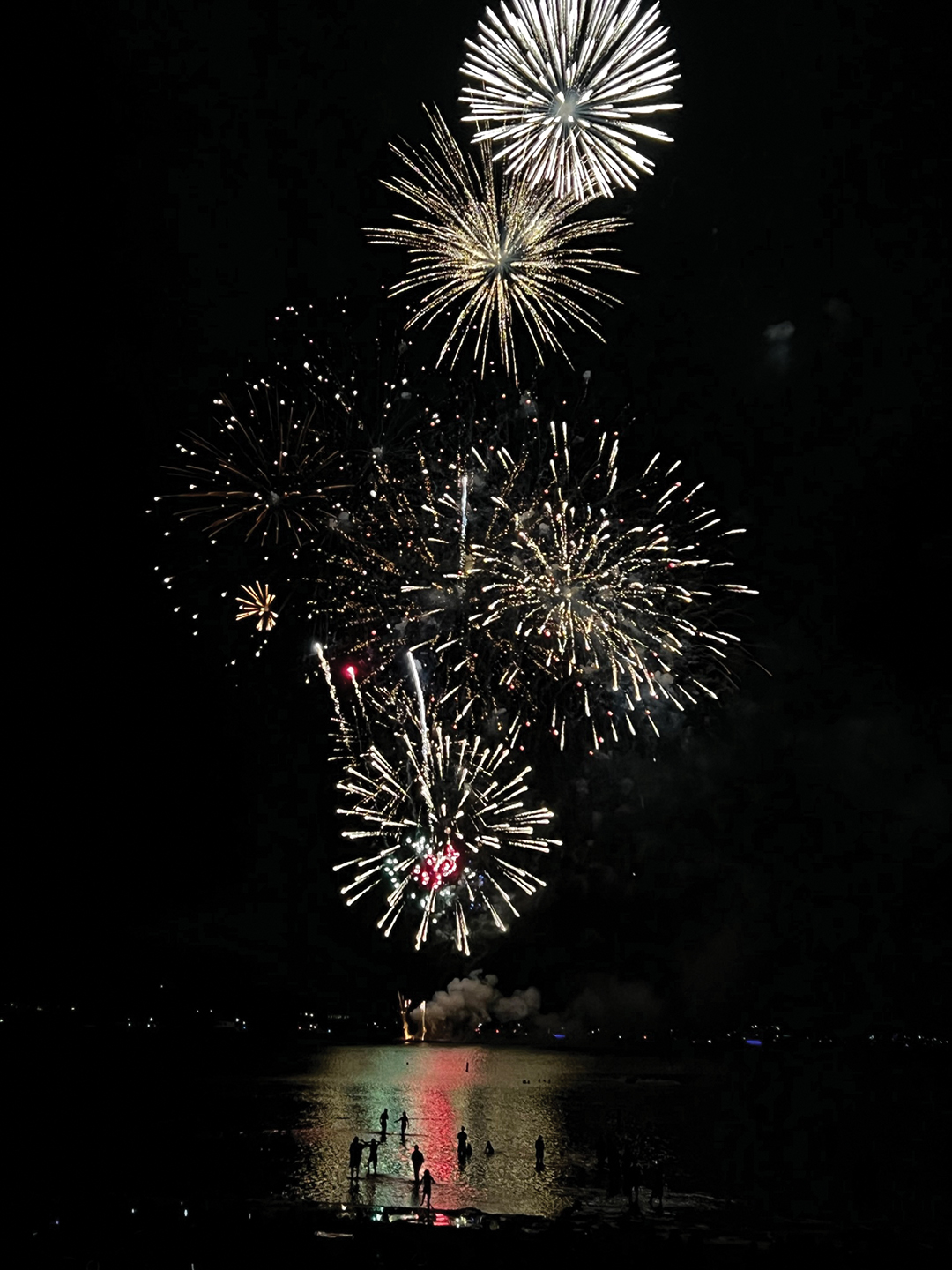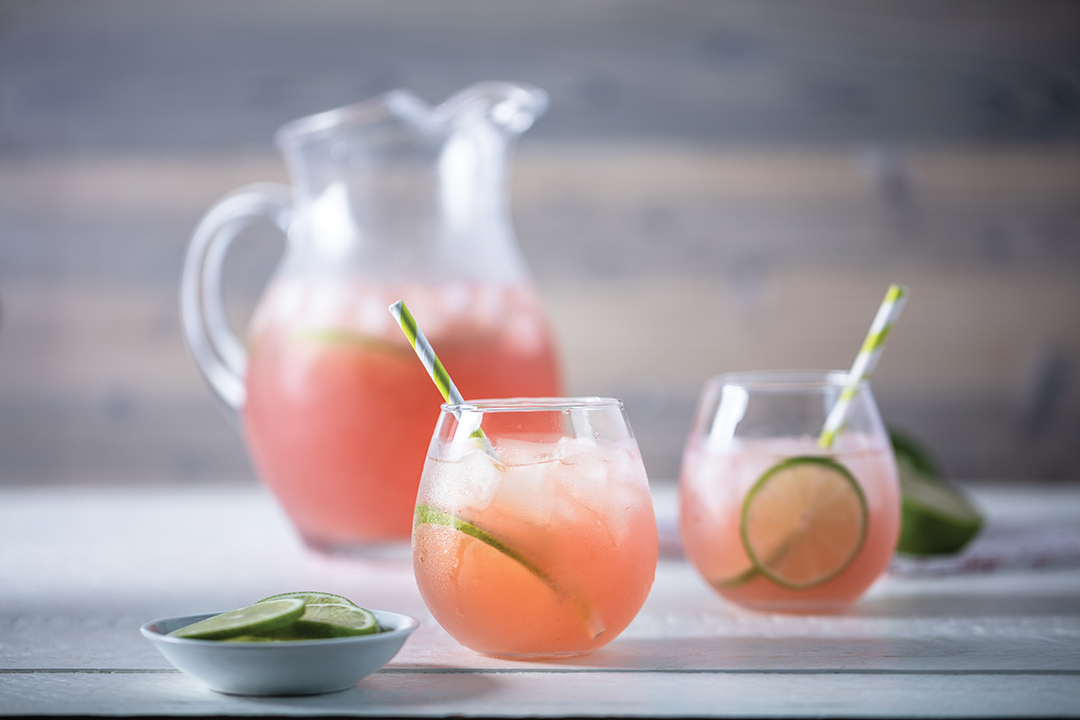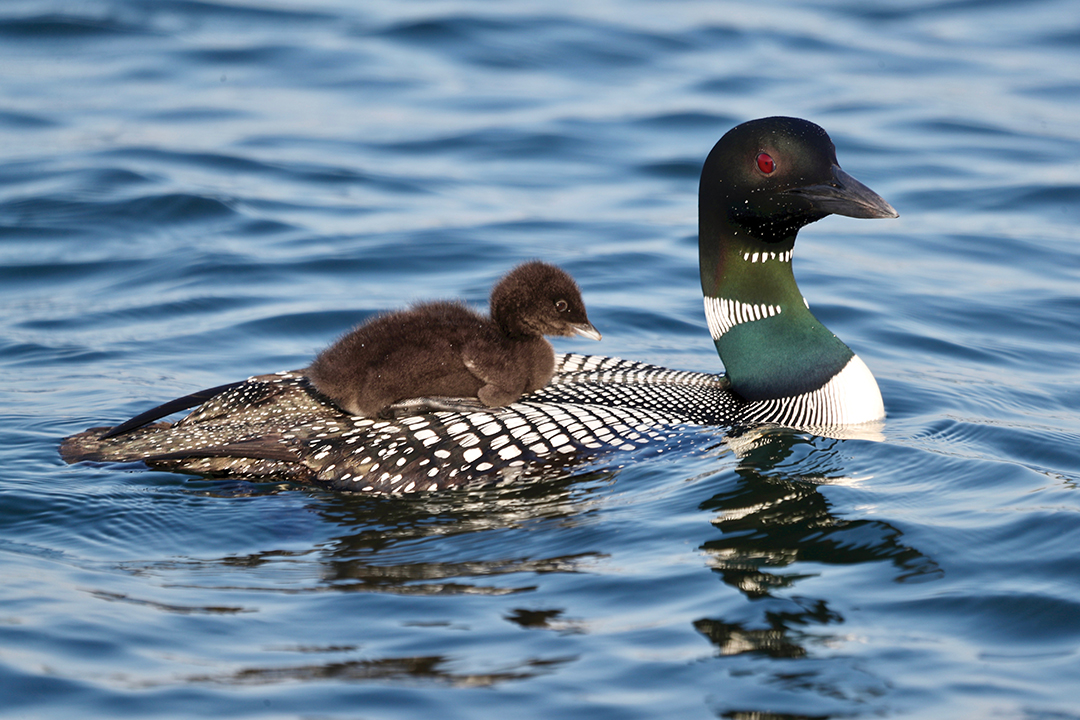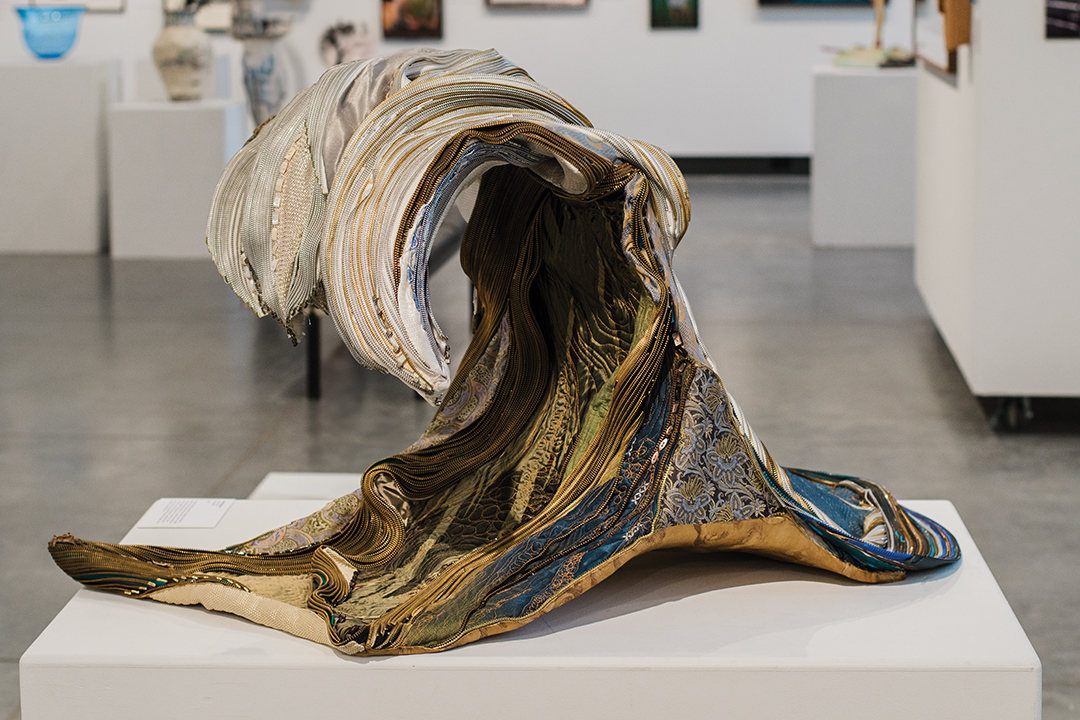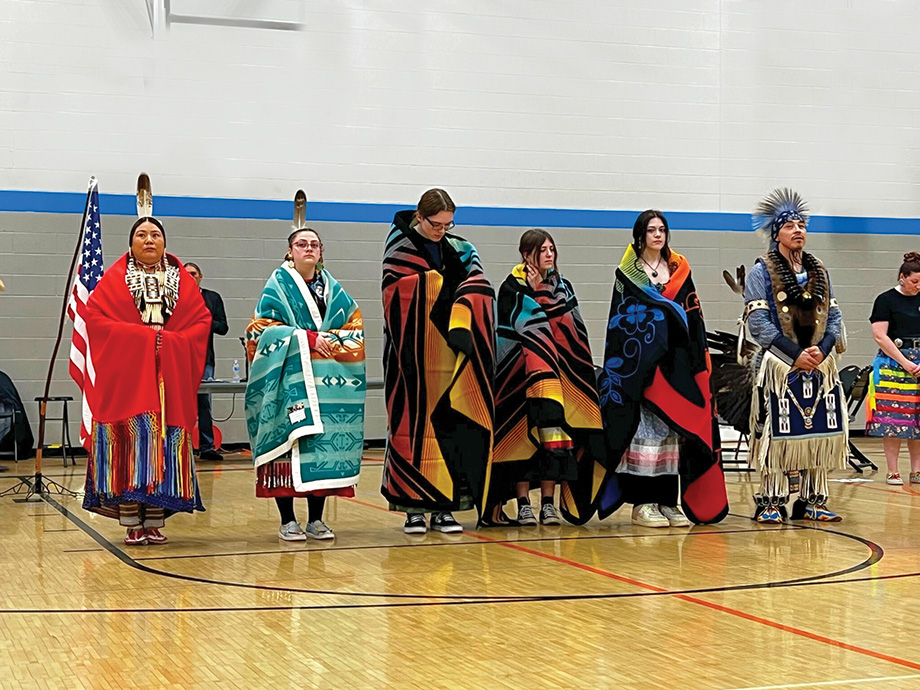
The blanketing ceremony celebrated graduating seniors from local schools. From left, head female dancer Tawny Hale, Natane Tom (White Bear Lake High School), Chase Rustin, Faith Cichon and Abby Speckman (Stillwater Area High School), and head male dancer George Green. Photo: Many Faces of the White Bear Lake Area
Local organizations join together to strengthen community through conversation.
It may have been an overcast spring afternoon when Many Faces of the White Bear Lake Area hosted its first Wacipi to celebrate the Indigenous community—but inside Sunrise Park Middle School, the gym was a kaleidoscope of color, sound and life.
Drum groups, including Sugar Bush and Tha Oyate Ota, shared songs while visitors of all backgrounds danced around the room in a joyful swirl.
As the drums quieted, a group of four American Indian students from local schools stood at the room’s center. As part of a traditional blanket ceremony, the graduating seniors were bestowed a blanket, and event attendees lined up to celebrate and honor each student.
Among the steady sprinkle of rain, it was a safe harbor where all could feel welcome.
“[The blanketing ceremony] was very powerful and emotional, and I loved seeing everybody in the community getting up to go through the line and shake those young women’s hands,” says Many Faces’ former chair Jackie Reis.
“When community traumas have happened, there’s healing that has to happen, work that has to be happening … in all directions. These types of events are by no means a one-and-done,” says current chair Tara Jebens-Singh. “They’re just a very scratching-the-surface beginning of the kind of big work that needs to happen.”
This effort is one that Many Faces of the White Bear Lake Area has taken on wholeheartedly. The collaborative currently includes 30 partner organizations, many of which organize inclusive community events both individually and as part of Many Faces.
“It’s created this wonderful web throughout the community in all these different spheres—whether it’s the civic, the faith, the nonprofit, educational spheres—of people having programs that focus on the themes that Many Faces supports,” says Reis, who represents the League of Women Voters and Rotary Club of White Bear Lake within the organization.
The Roots
Many Faces is a product of this time, rising in 2018 out of community conversations in White Bear Lake and Mahtomedi focused on the book A Good Time for the Truth: Race in Minnesota—a collection of perspectives written by 16 Minnesota authors that prompted discussion statewide.
“It seemed to us like a real, ready-made entry point because so many other communities were doing it,” says Jebens-Singh who, at that time, worked as the adult programs coordinator for White Bear Lake Area Schools.
Following these community conversations put on by the two school districts and the City of White Bear Lake, a program evaluation showed an “overwhelming” desire to have similar programs in the future. “From that, we realized that if we were going to continue to do this we needed to engage more partners,” Jebens-Singh says.
In the first years, Many Faces developed three core programs: The Original People: Dakota and Ojibwe; Changing Traditions: European settlers; and Shifting Demographics: Baby Boom and migration. When the global pandemic and a renewed racial justice movement took root in 2020, the organization adapted and responded. In partnership with Minnesota Humanities Center, each quarter of 2021 brought a new program in a series called Conversations about Race. “It was a nice way to connect these issues that the whole world was grappling with, but in a very local and specific way,” Jebens-Singh says.
As more organizations and their representatives joined Many Faces, the definition of what was possible evolved. “One of the real beauties of Many Faces is that it has been able to be organic and reflective and flexible depending on the partners that are around the table, the tasks at hand and the needs of the community,” Jebens-Singh says.
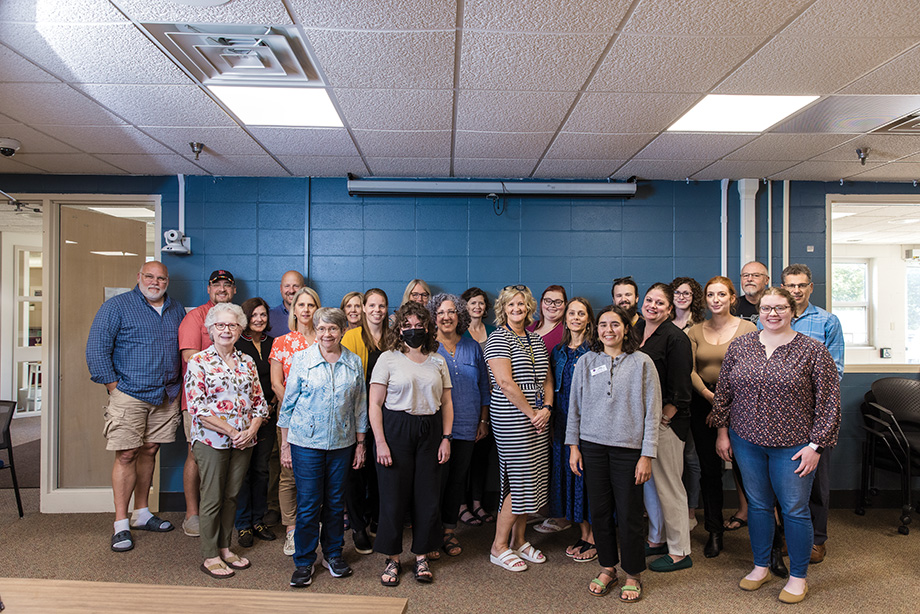
Representatives of Many Faces of the White Bear Lake Area at a September meeting at Mahtomedi District Education Center. Photo: Chris Emeott
Ripple Effect
In just five years, Many Faces has demonstrated that, together, much can be accomplished. “Collectively, there’s something that we can do that’s bigger than any one organization can do, and I think that the Wacipi was really a reflection of that kind of collective community work,” Jebens-Singh says. “It’s that kind of a thing that no one entity could put that on and have it mean what it meant.”
Through bimonthly large group meetings, with committees and project-specific task leaders meeting as needed, Many Faces and its member organizations have now been able to host more than 60 programs as a “collective volunteer community”—inspired by local input and emerging topics and strengths within partner organizations. “For me, the most positive thing is seeing the different partner organizations collectively working on community-wide events and issues and concerns and the ongoing rippling of those relationships,” Reis says.
Programming broaches topics like accessibility, ethnicity and race, homelessness and LGBTQ allyship—with most events open to all ages. “We’ve tried to broaden the whole definition of inclusivity … to get to everybody, all of our neighbors who live here and to build that sense of belonging,” Jebens-Singh says.
A pillar of Many Faces is ensuring that every program is rooted in the Greater White Bear Lake community and directly affects and represents the people that live, work or go to school here, Jebens-Singh says, adding: “It’s not just a matter of learning about different communities and cultures from around the world, but really rooting it in who is a part of our community and celebrating all that is here. And it’s such a rich, diverse community—we haven’t run out of any topics yet.”
Each September brings a new theme that Many Faces programs will look to during the school year. This year, the theme is Many Faces, Many Tables: Connecting Community and Culture Through Food, and Many Faces has plans to host community feasts and celebrations, conversations on books that focus on food, cooking classes and any other topic that recognizes food as a connecting force.
“This kind of work allows us to prepare for the community we want to see in the future, and I think that’s really important because, in a way, it honors all that the folks have done to make this community what it is from the past,” Jebens-Singh says. “It’s our time now to make sure that we’re doing our part to keep that forward momentum going.”
Taking Action
For individuals who want to be involved, attending a program is a great place to start, Jebens-Singh says. Donations are appreciated, and Jebens-Singh suggests folks look within the list of partner organizations to see if they are already a part of one of them; new representatives are always welcomed. “That’s a great entry point to be directly involved with the work that we’re doing,” she says.
Many Faces programming is often the product of a community member’s interest in sharing with the greater community. “If you have a particular story or something that you or your family wants to share and you think that a Many Faces event would be a great place for you to engage with that—yes, look us up,” Jebens-Singh says. “We’re always looking to uplift the stories of the people who live here right now.”
Upcoming Events:
Nourish! Connecting Community and Culture Through Food
November 28, 6–9 p.m. at St. Andrew’s Sanctuary Fellowship Hall, 900 Stillwater Road, Mahtomedi.
March 28, 6–9 p.m. at Willow Lane Elementary School, 3375 Willow Ave., White Bear Lake.
Join in community at these free community feasts hosted in partnership with the Suburban Ramsey Family Collaborative and Marnita’s Table. Featuring a menu with variety, including vegan options, these meals are meant to nourish mind, body and soul through conversation and good food. Interpretation, childcare and transportation are available with advance notice. To learn more and register, visit manyfaceswblarea.org.
Many Faces of the White Bear Lake Area
info@manyfaceswblarea.org
Facebook: Many Faces of the White Bear Lake Area

